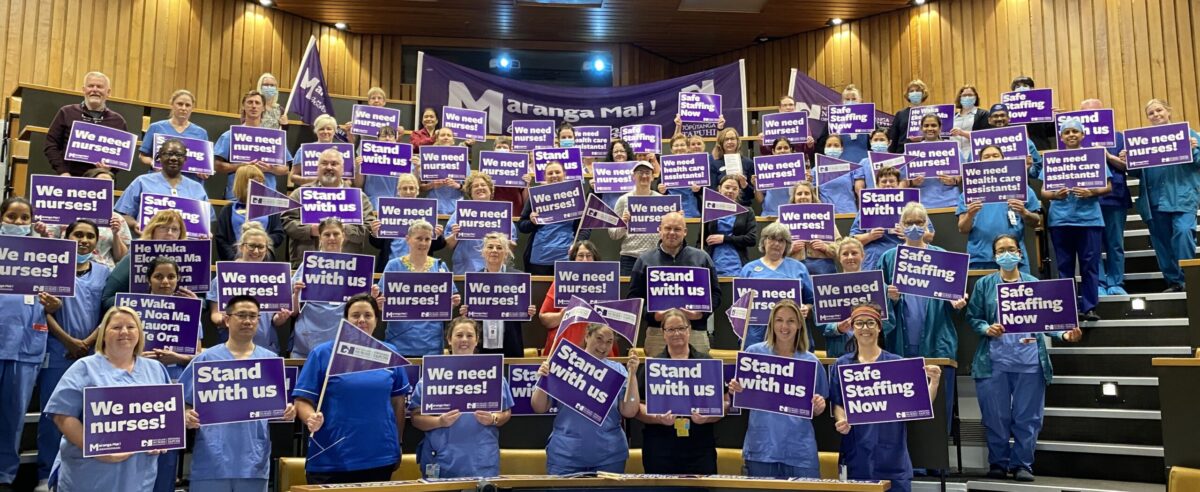Speaking at one of 40 NZNO-Tōpūtanga Tapuhi Kaitiaki o Aotearoa meetings held this week from the far North to the deep South, Hutt Hospital nurse Amanda Rogers said now was the time to pressure the new Government, as it decided on health spending for the next three years.
“It’s our opportunity to let the Government know that nursing is still in crisis,” she told Kaitiaki Nursing New Zealand. Now Te Whatu Ora nurses had settled their collective pay agreement, the focus needed to be on safety for nurses as 2024 bargaining approached.
Staffing shortages were “crippling” the health system at a time of increasing complexity and violence, she said.
‘Listen to us, talk to us, keep us safe.’
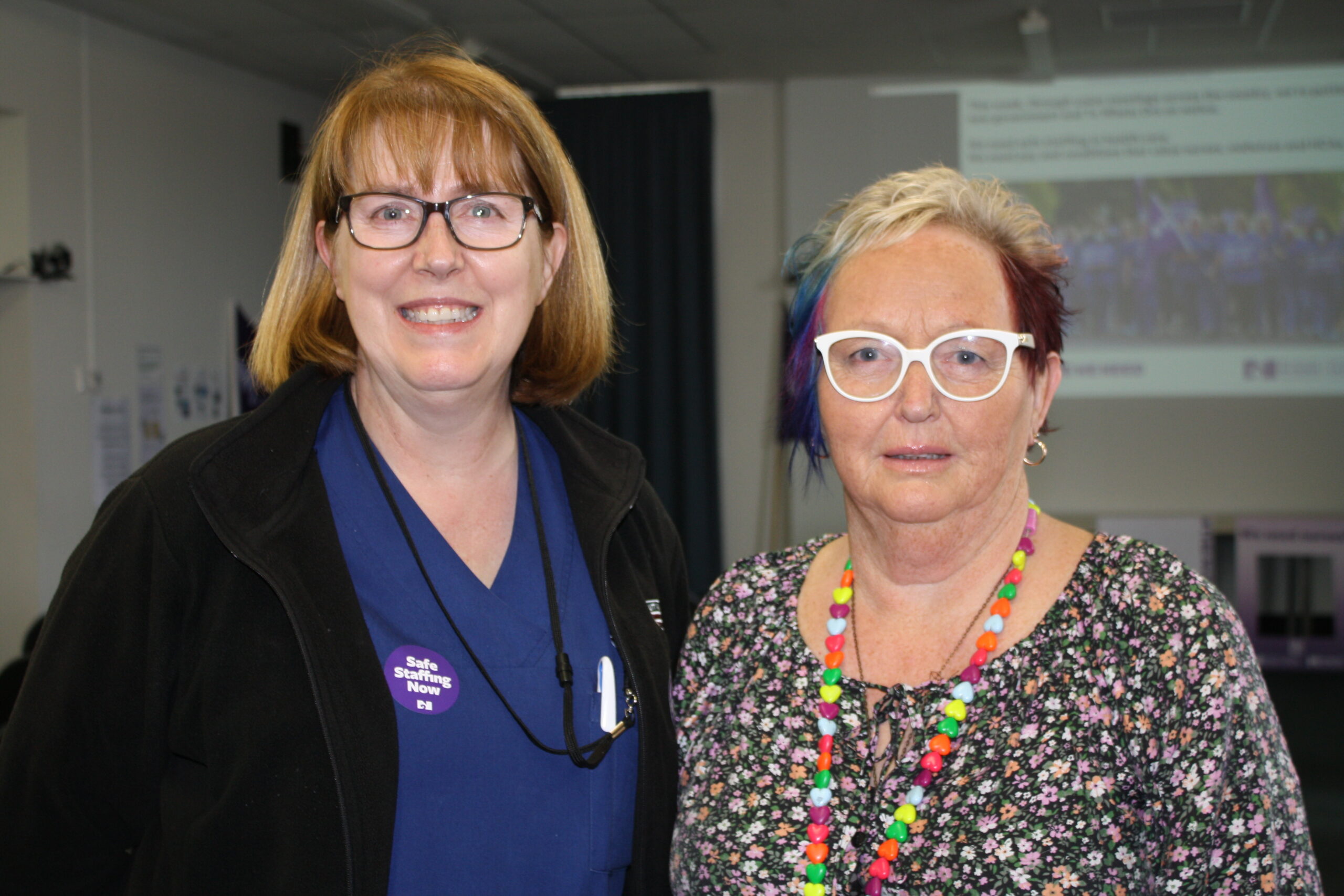
“I am a paediatric community nurse and some days there is only one of us,” she said. “Nurses are very resilient . . . but what we are seeing is staff leaving and not returning.”
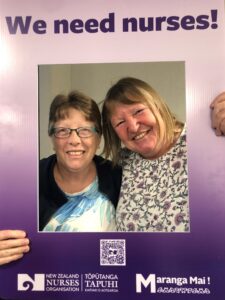
Another Hutt Hospital senior nurse Karen Durham said short-staffing meant nurses were forced to ration care for patients every day, creating high levels of stress leave particularly in the emergency department (ED).
Senior nurses were particularly struggling with burnout with many quitting, leaving wards without a safe skill mix, she said.
‘It’s not just about Te Whatu Ora — it’s about all 60,000 of us members. . . standing shoulder to shoulder with each other.’
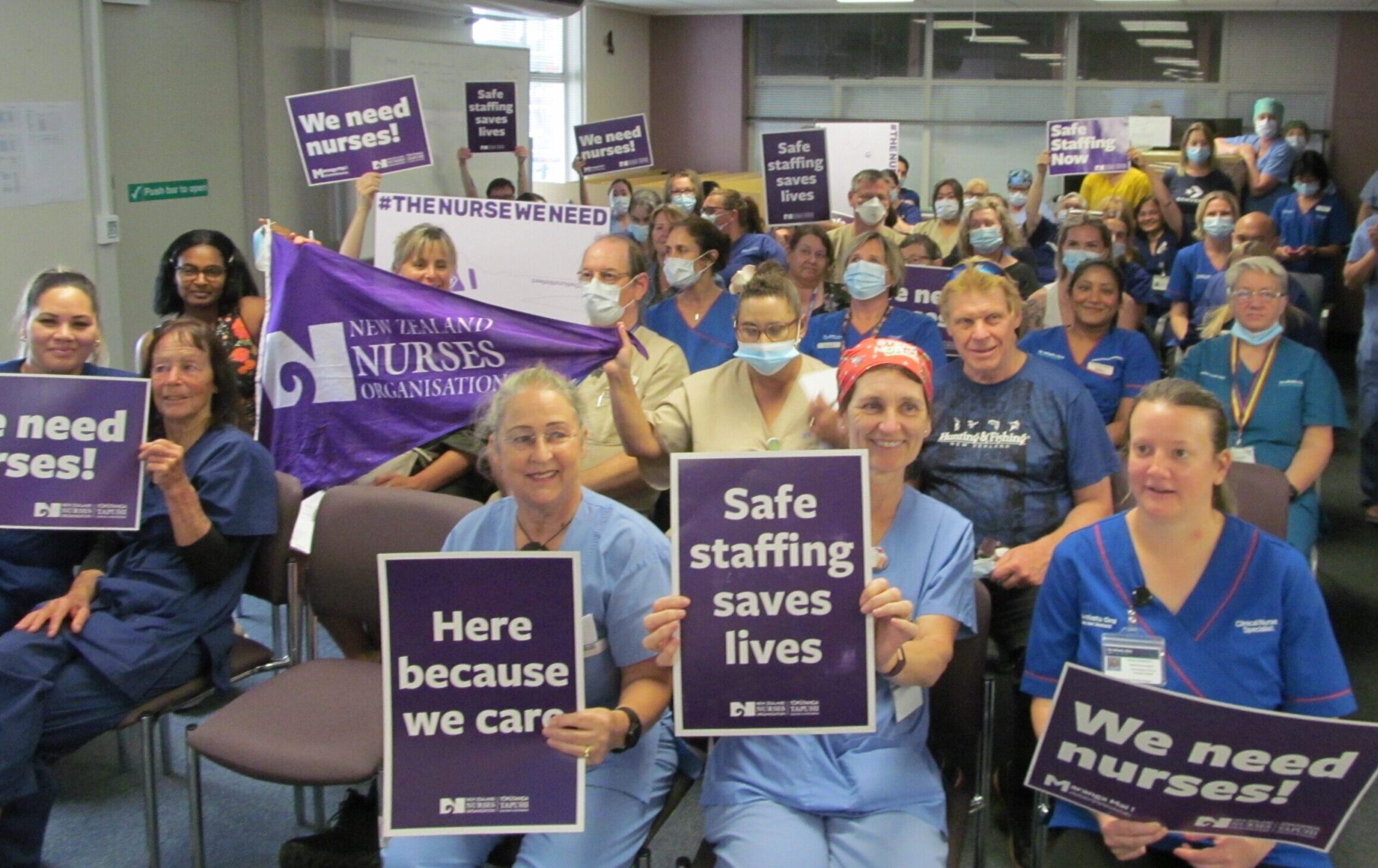
Durham — a nurse for nearly 40 years — said it was “just getting worse . . . we need equipment, staffing, teaching”. Her message to the Government was: “Listen to us, talk to us, keep us safe.”
Whakatāne nurse Tracy Black said members seemed keen to flex their collective power as the new Government found its feet and front-foot 2024 Te Whatu Ora bargaining. But it was about leading the way for all nurses, everywhere, she said.
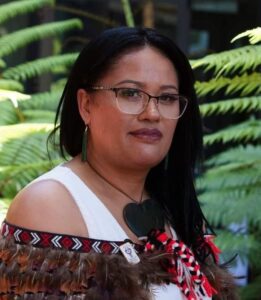
“It’s not just about Te Whatu Ora — it’s about all 60,000 of us members. . . standing shoulder to shoulder with each other.”
‘It was really heart-warming and encouraging that people turned out and were still enthusiastic after a really full-on, exhausting year.’
Whangārei Hospital delegate Rachel Thorn many “enthusiastic” members had turned out and were keen to see safer staff-to-patient ratios and to keep up the momentum of 2023. Senior nurses’ pay relativity was also a priority, as well as improving KiwiSaver contributions — which were less than for doctors and police.
“We need to show our strength in numbers and that we are a united front in the 60,000 members we’ve got now,” Thorn said.
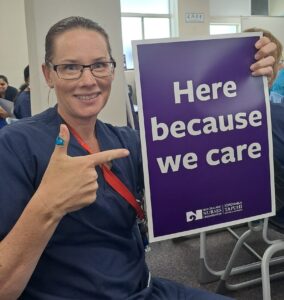
“It was really heart-warming and encouraging that people turned out and were still enthusiastic after a really full-on, exhausting year.” Now pay equity had been resolved, members had the “energy to fight for health and safety”.
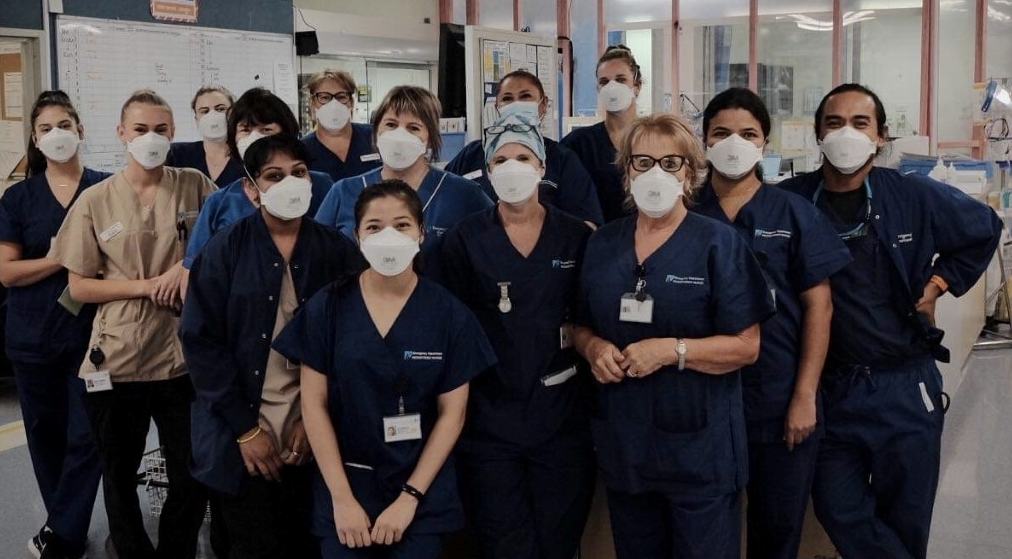
Concerns remained over some promises made in the 2023 collective agreement with Te Whatu Ora, such as the clinical nurse coordinator payment, which nearly six months on had not come through for some, Thorn said.
NZNO delegate Sacha Young — who ran Whangārei’s Tuesday meeting between night shifts — said despite a tough year, members turned out and were keen to keep pushing for investment in nursing as the Government set its budgets.
‘We are masses and we will stand beside and with you, back to back.’
Palmerston North Hospital nurse Jane Swift said there was “lots of energy” when talking about safe staffing, “or lack of it”, which had been a long-standing issue. “People really seemed to get into the spirit and embrace that.”
Southland Hospital rehabilitation nurse Maike Rickertsen said being safe at work was a key issue for members in Invercargill, who feared rising abuse was becoming “just another day” at work.
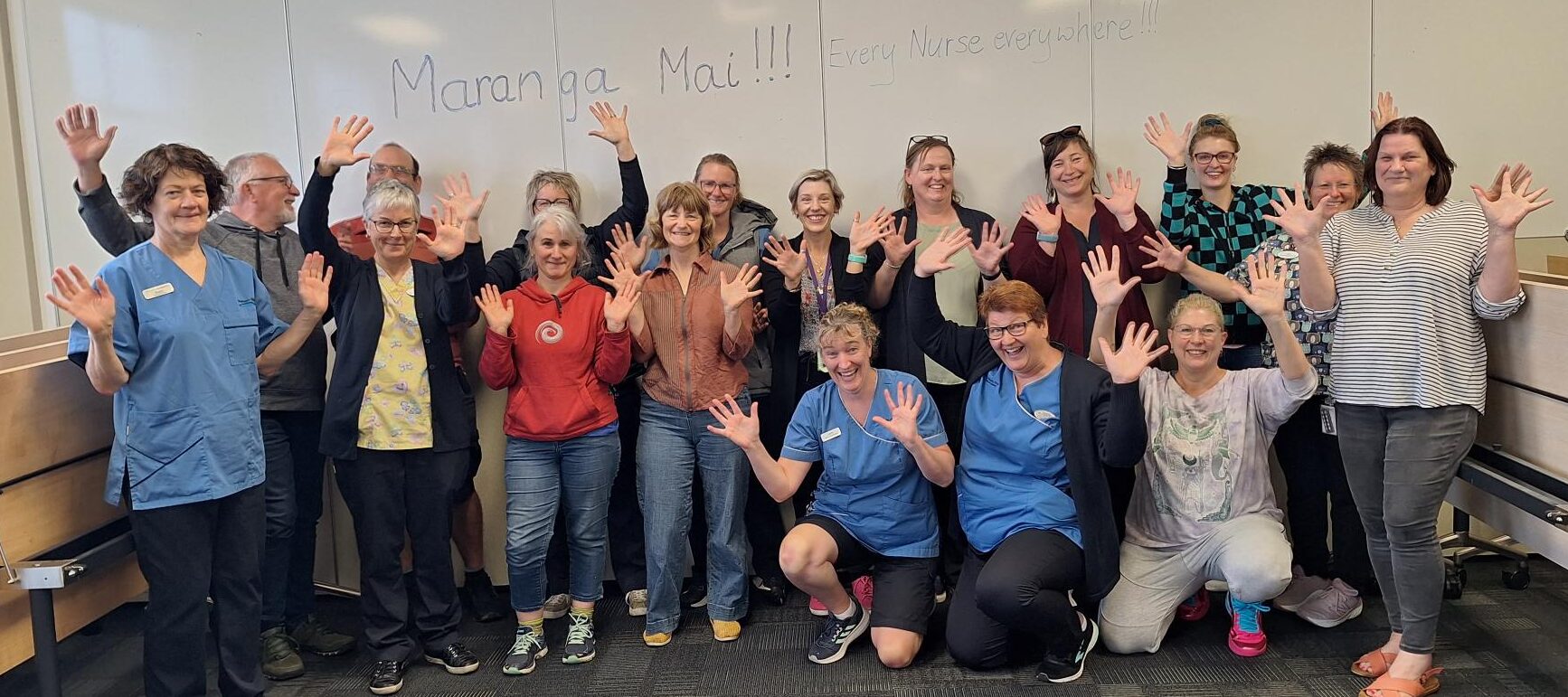
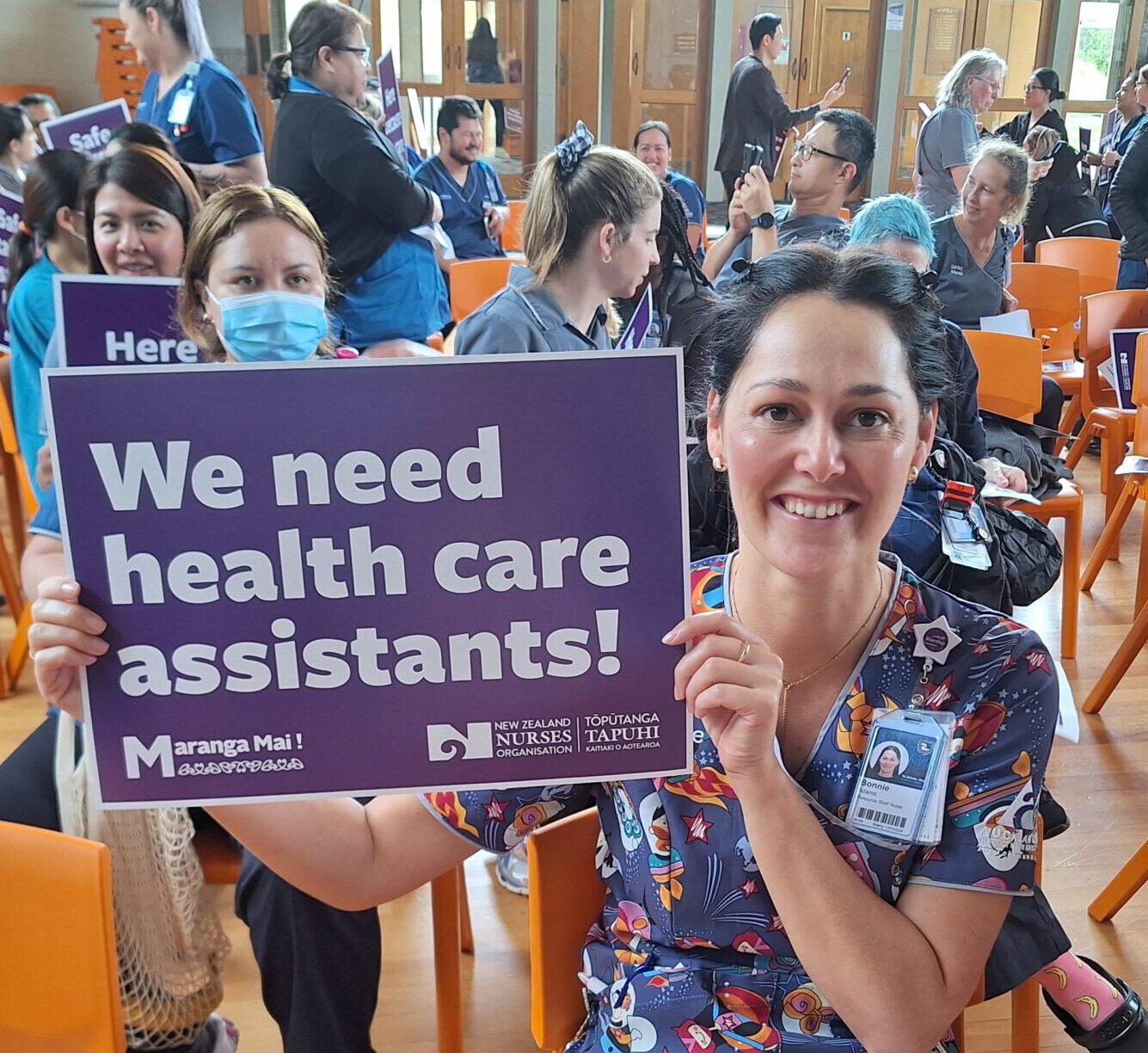
Her ward had experienced the highest turnover she’d ever seen over the past two years, as well as rocketing sickness and burnout levels — “we are just totally exhausted”.
‘People really seemed to get into the spirit and embrace that.’
Senior nurses like her were especially struggling. “As you are the most experienced nurse, you are dealing with the most complex cases, high patient loads . . . while providing leadership — it’s too much!”
IQNs need more support
Better support for internationally-qualified nurses (IQNs) — now 40 per cent of the workforce — was also needed as they adjusted to a new life in Aotearoa, Rickertsen said.
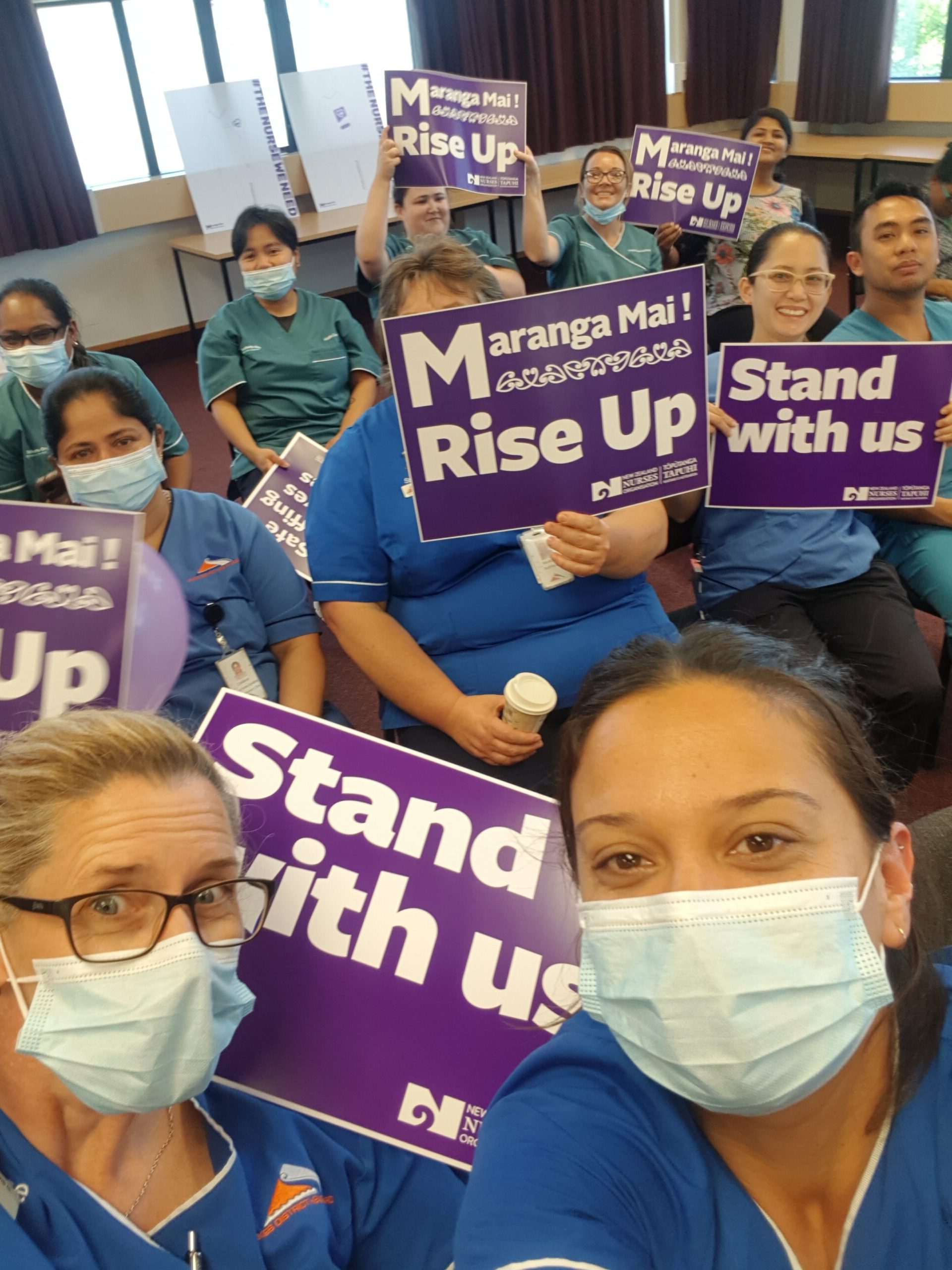
Rotorua Hospital nurse Linda Logan said over 50 staff turned out despite a busy hospital, and talked about funding support for students on placement and trying to get more students into nursing.
‘We are just totally exhausted.’
Retaining staff, increasing KiwiSaver and pay that aligned with inflation were also key concerns — as well as review of senior staff job descriptions as they often did “so much” more, she said.
Kaiwhakahaere Kerri Nuku, who spoke at Auckland central, said while members were tired, by the end there was a collective sense of “renewed energy” and courage to fight for safer conditions for all nurses.
“Not just Te Whatu Ora nurses, but wanting to bring others with us. We are masses and we will stand beside and with you, back to back.”
‘Health needs to top the list of Government spending priorities in that mini-Budget.’
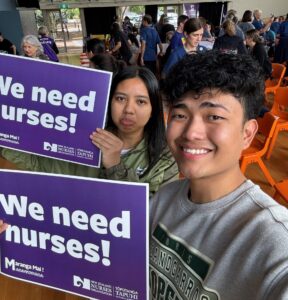
NZNO chief executive Paul Goulter said the nationwide paid union meetings from November 27 to December 1 were intended to “put the new Government and Te Whatu Ora on notice” that they must increase funding to the health sector and fix the 4000-plus nursing shortage.
A mini-Budget is expected to be announced before Christmas that will shape public spending for the next three years.
“Health needs to top the list of Government spending priorities in that mini-Budget.”
In the run up to 2024 bargaining with Te Whatu Ora, NZNO would be pushing hard for safer staffing levels including adequate nurse-to-patient ratios and “meaningful” pay rises.



